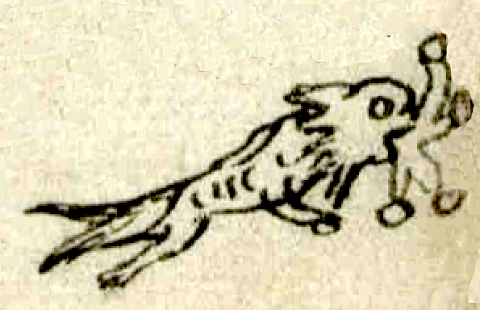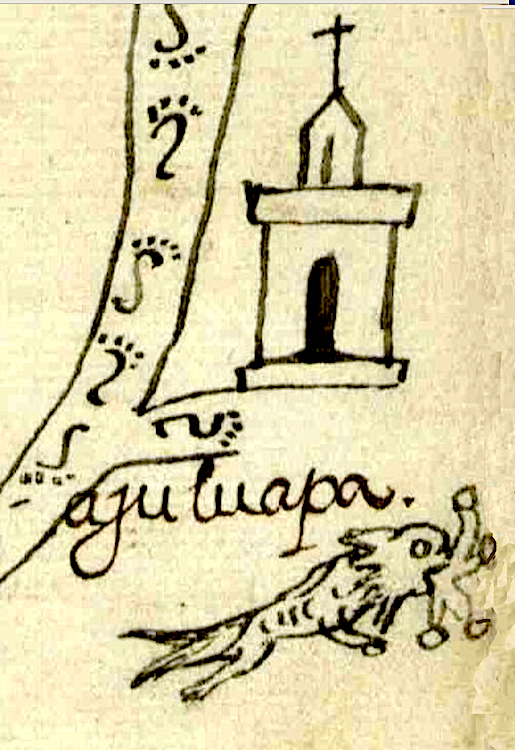Axoloapan (T2782:15:17r)
This black-line drawing of the compound place glyph with a profile view of a type of salamander native to Mexico (axolotl) is drawn naturalistically but also boasts a phonetic complement in the form of a glyph for water (atl) issuing out of its mouth. This second element emphasizes the aquatic nature of the animal and the “a” at the beginning of its name. The third element, a frontal view of a Spanish-style church standing above the axolotl and next to a road, serves in the role once played by the tepetl glyph as indicating a place, which is also underlined by an alphabetic gloss of the community’s name. The locative -apan could also be represented by the water feature.
Robert Haskett
The compound place glyph Axoloapan is depicted on a pictorial manuscript created around 1590. This community is in the Otumba region. The pictorial was included in the records of an investigation of land in near Axoloapan and two other towns, Calpulalpan and Ahuatepec, that were potentially affected by a pending grant of a sitio de estancia de ganado menor (ranch for small livestock) and two caballerías of land requested by the Spaniard Antón de Loza Moreno (see the historical contextualizing image). For an interesting discussion of an axolotl by the San Diego Zoo, see https://animals.sandiegozoo.org/animals/axolotl.
Robert Haskett
ajuluapa
Axoloapan
Robert Haskett
1590
Robert Haskett
salamander, salamandra, church, iglesia, water, agua , nombres de lugares
The mapa from AGN Tierras vol. 2782, expediente 15, folio 17 recto.

axolo(tl), a type of salamander, https://nahuatl.wired-humanities.org/content/axolotl
a(tl), water, https://nahuatl.wired-humanities.org/content/atl
-apan (locative suffix), on or at a place with water, https://nahuatl.wired-humanities.org/content/apan-0
el lugar del ajolote
Robert Haskett
Single-page codex, Archivo General de la Nación, México, Ramo de Tierras Vol. 2782, Exp. 15, Fol. 17r.
The Archivo General de la Nación (AGN), México, holds the original manuscript. This image is published here under a Creative Commons license, asking that you cite the AGN and this Visual Lexicon of Aztec Hieroglyphs.




